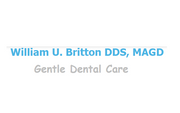What to Know About An Infected Tooth

Tooth pain of any sort can ruin your day, but when the pain is caused by an infected tooth, or abscess, it can be excruciating. While healthy dental hygiene and regular visits to the dentist can prevent most infections, they can still occur, especially if you’ve experienced tooth decay. It’s important to see a dentist right away if you have the symptoms of an abscess—if left unchecked, it can spread and have serious consequences.
What Are the Symptoms of an Infected Tooth?
When your tooth becomes infected, usually due to an injury or an untreated dental cavity, a pocket of pus will form at the root of the tooth or along the gum line near the decay. On rare occasions, an abscess can be caused by a foreign object, such as a bit of food, that gets caught in between your tooth and gum out of the reach of dental hygiene habits like brushing and flossing.
 The most common sign of a tooth infection is pain, which originates in the tooth and may radiate into your jawbone, neck or ear. This pain may get worse when you bite, chew, or lie down.
The most common sign of a tooth infection is pain, which originates in the tooth and may radiate into your jawbone, neck or ear. This pain may get worse when you bite, chew, or lie down.
You might also notice swelling around the tooth or in your face, swollen or tender lymph nodes, and increased tooth sensitivity. Some people also get a fever and have an unpleasant taste in their mouth.
How Is a Tooth Infection Treated?
Tooth infections are typically treated in one of two ways: a root canal or extraction. In most cases, your dentist will attempt to treat the infection with a root canal first. During this procedure, they’ll drill into the tooth to remove the infected tissue in the pulp and drain the fluid from the abscess. The tooth will then be filled and sealed.
Depending on the location of the tooth and the extent of the damage, you may be fitted with a crown to strengthen the tooth during a separate appointment. After the procedure, you’ll be prescribed antibiotics to treat any remaining infection. With proper dental hygiene, your tooth should last many years without trouble.
If the tooth has too much decay and can’t be saved, it will need to be extracted. The dentist will pull the infected tooth, drain the abscess, and prescribe antibiotics. At that point, you can discuss your options for a prosthetic tooth, including a bridge or implant.
If you’re experiencing extreme tooth pain, don’t ignore it. Turn to William U. Britton DDS, MAGD for compassionate, gentle treatment to keep your mouth healthy and pain-free. This practice works with adult and pediatric patients, providing general and emergency dental services, including exams, crowns, and implants. Dr. Britton and his team have been promoting dental hygiene throughout the Ross County, OH, area for more than 35 years. Schedule an appointment by calling (740) 772-2225 or visit them online to learn more about the practice.
About the Business
Have a question? Ask the experts!
Send your question

